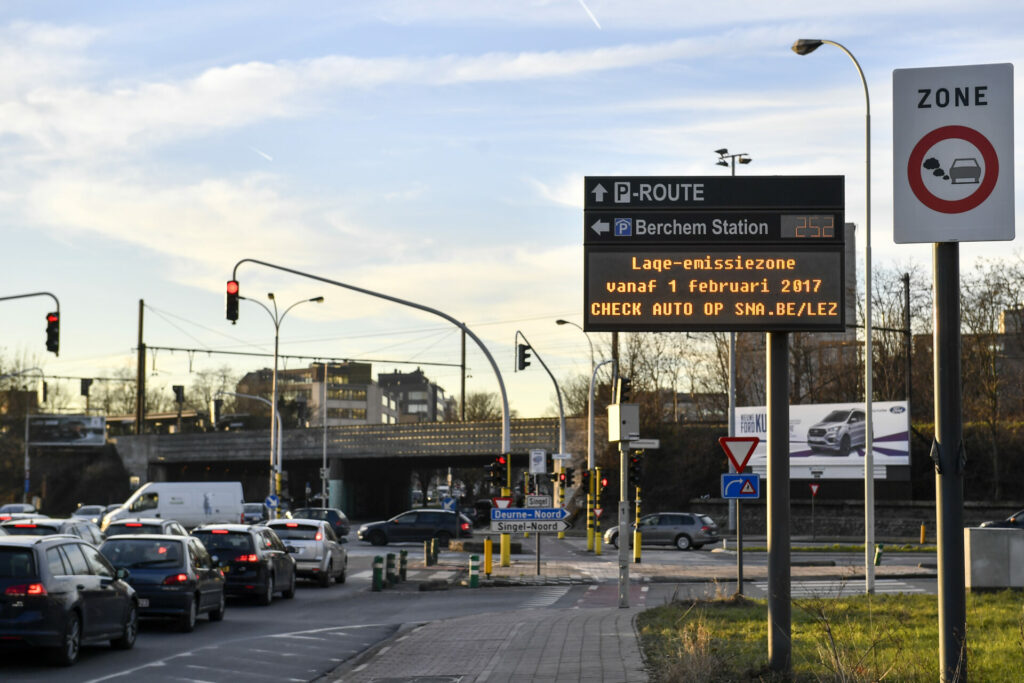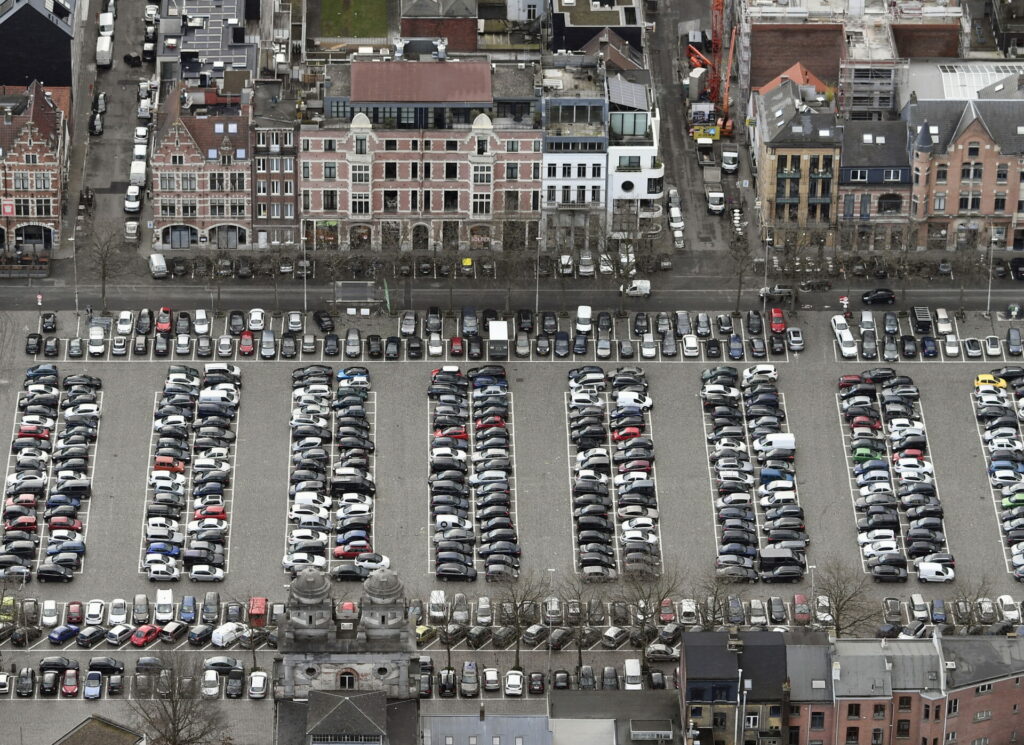Hailed as a clean alternative to combustion engines, electric vehicles are invariably promoted as a key means of de-polluting urban environments, almost to the point that they enjoy unwavering support, often accompanied by financial incentives to drive one.
However, discussion about electric vehicles is slowly becoming more critical, with the idea of filling towns and cities with electric vehicles now called into question as efforts to transform public spaces recognise the need to reduce traffic and promote public and active transport instead.
To this end, Antwerp citizens' movement "Klimplant", also known as the Climate Platform Antwerp, is launching an initiative to cut down the number of vehicles in the city by reducing car usage in the long term. Starting in 2024, the three-month pilot project centres around car-sharing and tackles Belgium's high concentration of company cars.
Company cars are a major contributor to Belgium's transport emissions, thanks largely to their prevalence – more than one in five employees have a car provided by their company. This presents a significant obstacle to efforts to limit movement by cars as staff are effectively encouraged to drive rather than take alternative transport modes.

A low emission zone in Antwerp. Credit: Belga / Dirk Waem
Despite company fleets becoming increasingly electric, European climate plans recognise the need to think beyond switching the type of vehicle in order to transform our environments for the better. While electric vehicles are recognized as a clean alternative to combustion engines for their immediate environment, they alone do not resolve the issue of excessive car traffic.
Indeed, 80% of the electric vehicles on Belgian roads are company cars, partly because these vehicles are expensive and often outside the budget of individual buyers.
Belgium stands out in Europe for the rapid growth of fully electric cars, primarily driven by significant tax advantages offered to businesses that invest in electric fleets. Simultaneously, tax incentives for diesel and petrol company cars are gradually being phased out.
Removing the legal roadblock
But whilst the popularity of company cars (electric or otherwise) presents a barrier to less congested cities, Klimplant aims to address this issue by providing a framework for electric company cars to be shared with locals. Not only would this reduce the need for individual car ownership, it also should encourage those cars that do circulate to be electric.
Currently, car-sharing platforms like Cambio, Poppy, and Dégage reduce car mileage in urban areas and alleviate parking congestion. However, the widespread use of company cars remains a challenge. Until now it has been difficult for these vehicles to be shared due to insurance complexities.
Klimplant's "Deelvolt" project confronts this problem head-on: "We are actively collaborating with three companies to enable employees to share their salary cars with neighbours for a three-month trial in 2024,” Marlies Lenaerts, a representative from Klimplant, told VRT. “This practical experiment will help us understand how to address tax and legal hurdles."
Related News
- Are electric cars too cheap to drive? Transport economists argue for higher taxes
- Premium system for electric cars: Necessary push or financing traffic jams?
- Belgium's first app combining all modes of transport launches in Brussels
The initiative will use the established Dégage sharing platform, which allows private owners to register their vehicles in a local pool so that others can rent them. The platform manages reservations, insurance, and claims. With support from Antwerp City, the project will address legal matters such as amending insurance contracts to accommodate car sharing and revising company car policies to expand the pool of authorised drivers.
Lenaerts also highlights the need for a psychological shift: "Your company car is your sanctuary... Sharing it means relinquishing personal space as you can't leave personal belongings in the car."
Nonetheless, a survey by Klimplant found that company car holders were generally willing to embrace the sharing concept. Moreover, just 60% of company car owners use their vehicles daily, and approximately 50% expressed a willingness to share their cars on available days.

